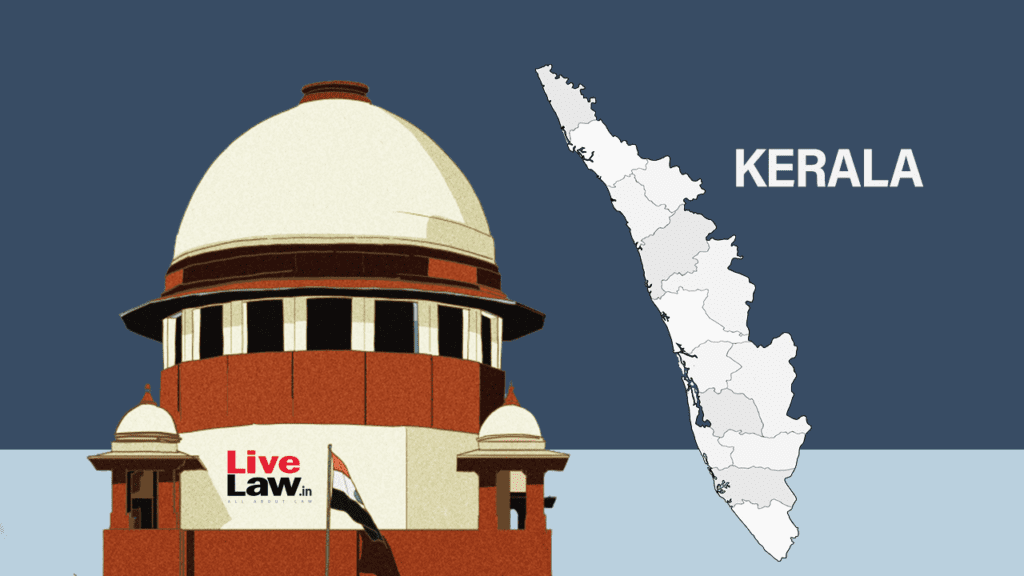Kerala government has recently approached the Supreme Court over the Governor’s Role in Lawmaking Process
Governor’s Role in Lawmaking Process:Recently, the Kerala government submitted a plea to the Supreme Court regarding the Governer’s Role in the Lawmaking Process, declaring the Governor’s role in the lawmaking process as “unconstitutional and lacking in good faith” reflects the tension between state autonomy and central authority. The issue raises questions about the role of Governors and their adherence to constitutional principles in the legislative process. The bench comprising CJI DY Chandrachud, Justice JB Pardiwala, and Justice Manoj Misra also sought for the assistance of Attorney General R Venkatramani will consider the plea.
Governor’s Role in Lawmaking Process
What the Constitution had said regarding Governor’s Power

The relevant article in the Indian Constitution related to the referral of state Bills to the President is Article 200. This article outlines the procedure for assent to Bills by the Governor. It states:
(1) When a Bill has been passed by the Legislative Assembly of a State, it shall be presented to the Governor, and the Governor shall declare either that he assents to the Bill or that he withholds assent therefrom or that he reserves the Bill for the consideration of the President: Provided that the Governor may, as soon as possible after the presentation to him of the Bill for assent, return the Bill if it is not a Money Bill together with a message requesting that the House or Houses will reconsider the Bill or any specified provisions thereof and, in particular, will consider the desirability of introducing any such amendments as he may recommend in his message and, when a Bill is so returned, the House or Houses shall reconsider the Bill accordingly, and if the Bill is passed again by the House or Houses with or without amendment and presented to the Governor for assent, the Governor shall not withhold assent therefrom: Provided further that nothing in this clause shall prevent the Governor from reserving for the consideration of the President any Bill which in the opinion of the Governor would, if it became law, so derogate from the powers of the High Court as to endanger the position which that Court is by this Constitution designed to fill.
(2) A Bill reserved for the consideration of the President shall not become law unless the President has assented thereto: Provided that where a Bill is not a Money Bill, the President may return the Bill if it is not a Bill which if presented to him for assent would be a law imposing restrictions on trade or commerce and, the Bill has been so returned, the Houses shall reconsider it accordingly, and if the Bill is again passed by the Houses with or without amendment and presented to the President for assent, the President shall not withhold assent therefrom.”
This article delineates the powers and responsibilities of the Governor in giving assent to Bills passed by the Legislative Assembly of a State, including the provision for reserving Bills for the consideration of the President.
How many bills passed by the state legislature in Kerala?
Kerala government sought appropriate orders from the court regarding the inaction of the Governor in relation to eight bills passed by the state legislature and presented to the Governor for his consent under Article 200 of the Constitution
What is Article 200?
. Article 200 outlines the procedure for the Governor to either give assent to a bill, withhold assent, or reserve the bill for the consideration of the President.
- Marathi Sexy Girl Bike Riding Video: Watch Now
- Germany Faces Recession as Economy Contracts Unexpectedly
- TATA IPL 2023: क्या इस बार मिलेगा आईपीएल को नया चैंपियन , या फिर चैंपियन टीमें ही फिर मारेंगी बाजी
- CTTC Bhubaneswar Recruitment Notification: Various Posts Available
- Uppena fame Krithi Shetty had high hopes for Manamey, after multiple failed movie character



